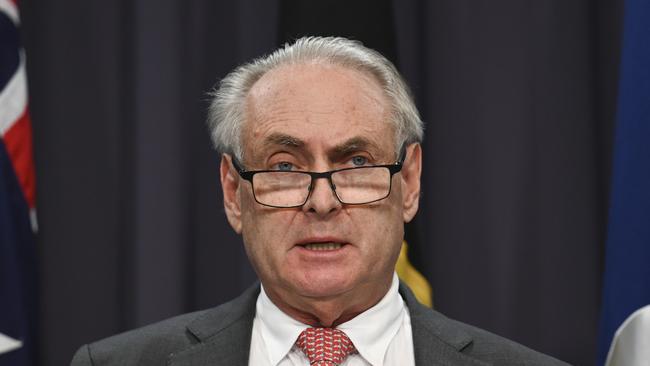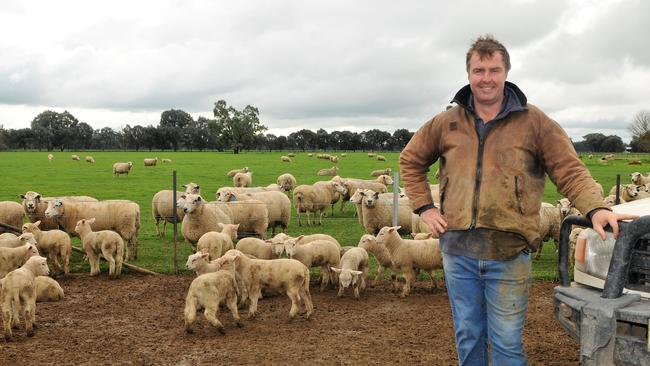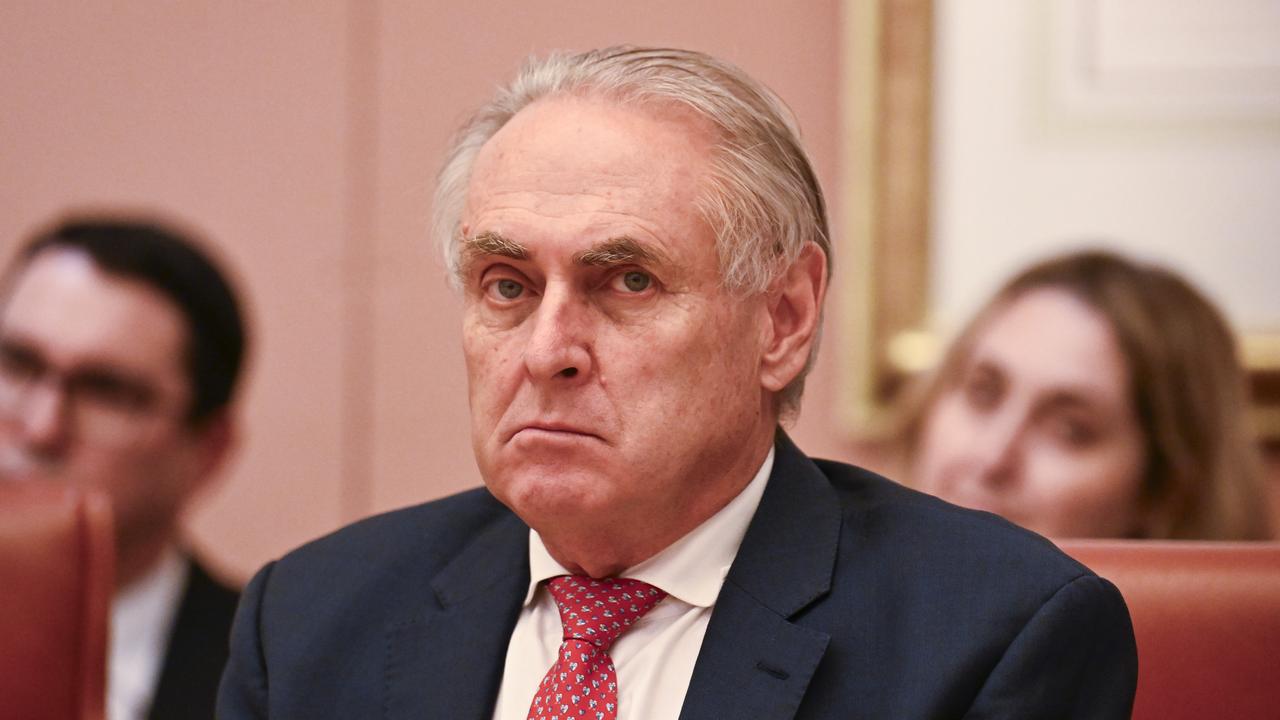Australia sets its sight on the EU to counter Trump tariffs
A free trade deal with the Europeans is back on Trade Minister Don Farrell’s agenda as he navigates a global trading environment disrupted by new US tariffs.
Australian diplomats have ramped up efforts to strike a free-trade deal with the European Union as more than $8bn in agricultural exports are slapped with US tariffs.
Trade Minister Don Farrell will meet with the EU’s Commissioner for Trade and Economic Security Maros Sefcovic on Wednesday night as Australia scrambles to shore up alternative markets for its agricultural goods.
Agriculture Minister Julie Collins reiterated the Prime Miniser on Tuesday, telling a beef exporting conference in Queensland that Australia would not compromise on food safety standards – as US farmers are continuing to urge.
“We will not negotiate on biosecurity, and we will not undermine our world-renowned system,” she said.
The talks with the Europeans follow US President Donald Trump’s decision last week to impose immediate global tariffs of at least 10 per cent on American imports, up-ending the international trade landscape and forcing many nations to rethink their strategies.

Mr Farrell told reporters that the “world has changed” with the tariff announcement, resetting the terms of Australia’s negotiations with the Europeans.
“What we’re going to do is look for other markets to sell our products in. The agreement with the European Union did fall over over beef imports into the EU,” Mr Farrell said.
“The world has changed as of today. The world has changed for Europe. Europe is now subject to a much higher tariff into the United States.
“If they’re sensible they will make us a better offer on the issues that made the agreement fall over last time and we will get a free-trade agreement with the EU, the largest economy in the world.”
Last year, Australia exported just 6772 tonnes of beef to the EU, valued at $182m. In comparison, the US imported almost 400,000 tonnes of Australian beef valued at more than $4bn.
Prime Minister Anthony Albanese said on Friday the federal government would “make sure that we try to open new markets for all our goods and products”.
This would be helped along by federal funding announced last week of $50m, some of which would be set aside to explore new markets for ag products alongside the National Farmers’ Federation.
The Coalition’s trade spokesman, Kevin Hogan, said a Dutton government would similarly pursue a free-trade agreement with the EU, as well as revive discussions on free-trade agreement with Israel, Canada and other “like-minded countries”.
“(The Coalition’s) robust free trade agenda is aimed at increasing and diversifying export opportunities for Australian farmers, miners and businesses,” Mr Hogan told The Weekly Times.
Meat and Livestock Australia international markets general manager Andrew Cox said better access was needed to the EU. “It is a market whose specifications we can meet. We are very hopeful our two governments can get an agreement where we can get a meaningful level of access,” Mr Cox said, adding industry was “very supportive of the governments’ recent efforts to finalise a deal.
Meanwhile, Australian agriculture is facing a brave new world of international trade as the fallout from US tariffs begins to emerge.
While the 10 per cent blanket tariff imposed on all Australian exports into the US was judged a better result than expected, the impact on other trading partners could have an indirect effect on Australia’s major customers such as China, Korea and Japan.
ANZ Food, Beverage and Agribusiness Insights executive director Michael Whitehead said if US tariffs reduced Australian exports, there could be opportunities in alternative markets such as Japan, South Korea, and China.
“Japan already sources 39 per cent of its beef imports from Australia, South Korea 45 per cent, and China 17 per cent,” Mr Whitehead said.
“However, competitors like Brazil, New Zealand, and Argentina are also well positioned to capitalise on any disruption in US trade flows.
“The Australian beef sector has shown resilience before, but with US trade policy evolving, maintaining diversified markets, agile supply chains, and strong biosecurity protections will be essential.”
Commonwealth Bank agricultural economist Dennis Vosnesenski said the upshot of the US’ tariffs was a historically low Australian dollar, hitting its lowest level since 2003, which would make Australian exports more globally competitive.
Mr Vosnesenski said retaliatory tariffs from China – which has imposed an additional 34 per cent tariff on all US imports on April 5 – and other Asian nations such as Japan, the Philippines, Indonesia, South Korea and Thailand, would increase demand for Australian exports.
“If they put retaliatory tariffs on the US they’re going to have to get it (beef and grains) elsewhere and that elsewhere is us,” he said.
“If China is putting tariffs on the US we’re likely the alternative market, whether its for wheat or sorghum or barley. If they’re not going to import US corn they could import our wheat or barley instead.”
While beef is the nation’s biggest export to the US, lamb comes in second and producer Tom Bull, from Holbrook in southern NSW, said while lamb prices would almost certainly increase in the US due to the tariff, there could be an upside.
“Beef prices are increasing in the US due to low cow numbers, and in some ways expensive beef helps lamb,” said Mr Bull, who exports lamb product to the US.
“I suspect that the 10 per cent tariff will end up being worn 5 per cent by producers and 5 per cent by US consumers.”

“For our program, it won’t help but a 20 per cent tariff would have ben devastating,” he said.
“At a 10 per cent tariff, it’s a dent but not a crash.”
Mr Bull also criticised the European Union for complaining about the Trump tariffs, pointing out that while the EU faced a 20 per cent tariff, it continued to enforce a lamb import quota on Australia that had been in place since the 1930s.
“New Zealand is allowed 87 per cent of lamb exports to the EU under the quota and we get less than 10 per cent,” Mr Bull said.
“They can’t complain about tariffs and at the same time have quotas like this.”
Horticultural exports could also be indirectly affected as competitors look to push produce away from the US into markets supplied by Australia.
Citrus Australia chief executive officer Nathan Hancock said the longstanding trade with the US was now under threat and the industry needed to look to other markets.
“Australia is better positioned than many competitors to adapt to market shifts, but the tariff will likely cause broader global supply distortions,” Mr Hancock said.
“When barriers go up, markets respond. Our competitors may divert their exports to Asia, increasing pressure on those markets. It’s a ripple effect, and no one wins.”
Mr Hancock said the industry would focus on diversifying markets “as we did during the last round of global trade tensions”.




